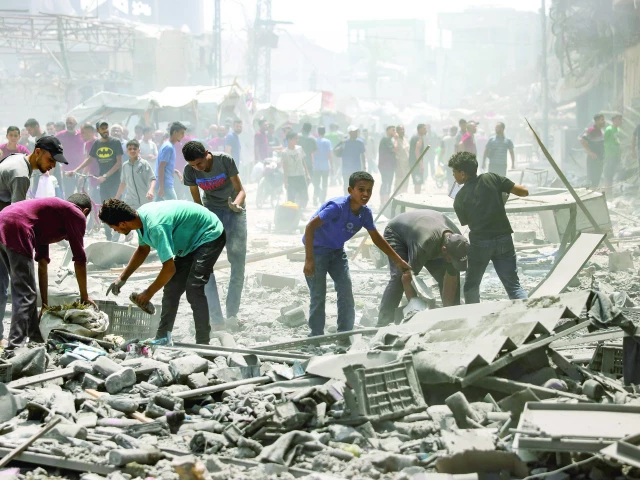Israel faces backlash over Gaza plan
Germany, Saudi Arabia and the UN condemn takeover move

Israel's military will "take control" of Gaza City under a new plan approved by Prime Minister Benjamin Netanyahu's security cabinet, drawing swift criticism from inside the country and abroad.
Nearly two years into the Gaza war, Netanyahu faces mounting pressure to secure a truce that would ease famine conditions for the territory's more than two million people and free hostages held by Palestinian militants.
Hamas condemned the plan to expand fighting as a "new war crime," while close ally Germany took the unprecedented step of halting certain military exports to Israel over concerns they could be used in Gaza.
Under the approved strategy to "defeat" Hamas, the Israeli army "will prepare to take control of Gaza City while distributing humanitarian assistance to the civilian population outside combat zones," Netanyahu's office said.
Before the decision, Netanyahu told US network Fox News that Israel wanted a "security perimeter" in Gaza but did not intend to govern it, preferring to hand control to "Arab forces that will govern it properly without threatening us."
Netanyahu's office said the cabinet adopted "five principles," including the territory's demilitarisation and creation of an alternative civil administration "neither Hamas nor the Palestinian Authority".
Domestic reactions
Opposition leader Yair Lapid denounced the plan as "a disaster that will lead to many other disasters", warning it could endanger hostages and cost Israel diplomatically and financially.
The Hostage and Missing Families Forum accused the government of "abandoning" captives.
Some Israelis backed the move. "As they take control of Gaza, they will eliminate Hamas completely — maybe not completely, but at least a good percentage," said Chaim Klein, a 26-year-old yeshiva student.
On the ground
The Israeli army says it controls 75% of the Gaza Strip, mostly along the border. Of the 251 hostages taken during Hamas's 2023 attack, 49 remain in Gaza — including 27 confirmed dead.
Gaza residents fear renewed fighting. "They tell us to go south, then back north, and now south again. We are human beings, but no one hears us," said Maysa al-Shanti, a 52-year-old mother of six.



















COMMENTS
Comments are moderated and generally will be posted if they are on-topic and not abusive.
For more information, please see our Comments FAQ